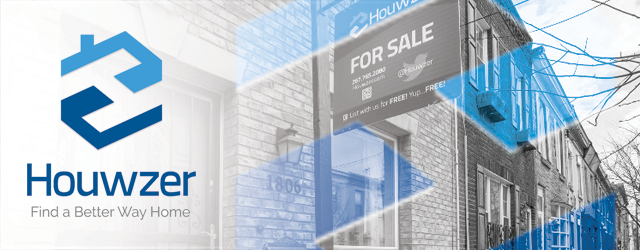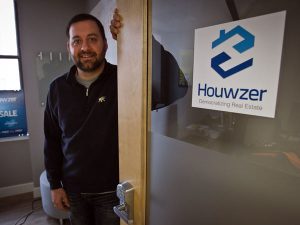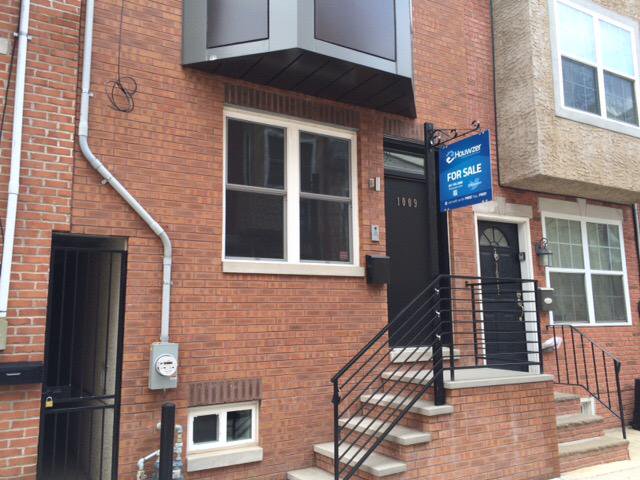
Mike Maher is a serial entrepreneur with a knack for problem solving and collaboration. Mike first emerged as a powerhouse on the scene when he co-founded Benjamin’s Desk, a Philadelphia-based coworking network. Since its first space opened in 2012 at 1701 Walnut Street, it has expanded across the city and recently merged with 1776, a public benefit corporation. Following the success of Benjamin’s Desk, Mike co-founded Bunker Labs the first innovation incubator built by veteran entrepreneurs to provide resources and a community for the 25% of transitioning service members interested in starting a business.
His latest venture Houwzer, a collaboration with developer Kevin Baird, is disrupting an industry that’s remained relatively the same over the years. Houwzer is a Philadelphia based brokerage that’s thrown a wrench in the traditional real estate machine. The company’s rebuilt the real estate brokerage model with technology at the forefront, while taking commission off the table and providing salary and benefits to their agents. Houwzer currently has offices in Philadelphia, Conshohocken, Haddonfield, and West Chester.
 I met up with Mike at Benjamin’s Desk to talk about Houwzer’s disruptive model, why Philly’s the perfect backdrop for real estate innovation, and how the company is making an impact.
I met up with Mike at Benjamin’s Desk to talk about Houwzer’s disruptive model, why Philly’s the perfect backdrop for real estate innovation, and how the company is making an impact.
AVW: You’ve defined Houwzer as a disruptive model. What are some of the challenges you’ve faced going against a traditional model?
MM: Approaching a brokerage model that hasn’t been significantly altered over the years is inherently disruptive and educating our customers on what that means can be challenging.
AVW: There’s multiple ways you can interpret education, right? Being disruptive in an industry doesn’t just mean educating the public, but often those who are a part of the industry that you are disrupting, would you agree?
MM: Yes, there is a myth I’m trying to dispel in the market. No one has done what we have done, which is zero percent, meaning full service for half the cost. Because we are doing that, at first glance, some look at us and say we are taking money off the table. And that’s true, but we are taking money off the table because it is in the best interest of the customer. The annual real estate sales commission is $70 billion, which is a little fat to be quite frank. It’s massive, so it’s in the best interest of the consumer that we find a better solution and it’s in the best interest of the agent that we operate differently as well.
70% of real estate agents will wash out of the industry within 12 months and 90% after 24 months. That’s a systemic problem for any industry. If your primary work force is churning at 90% in 24 months, that’s a problem. We have 92% retention rate with our agents—the inverse of the market. We are taking money off of the table, but we are putting agents on a salary, giving them them benefits, and the opportunity to earn bonuses and raises.

AVW: That retention rate really speaks to the benefit of the Houwzer model to the agents, but is there also a shift in perspective of customer when you make those changes?
MM: Absolutely, today the customer of your typical brokerage is the real estate agent. So if I’m them, my business model is to hire real estate agents, knowing that 90% are going to churn in the next 24 months, and those 10% – 20% who remain are my bread and butter. They are my customers. Houwzer is different because our customer is the end user: the buyer or seller. We create a relationship with an agent who actually cares about the customer, which is unique. At the end of the day, what I think is most compelling about our model is the relationship between a salaried real estate agent and the buyer, or the seller.
When you use a traditional brokerage company, there is no continuity of service. A broker can’t mandate which technology they use, which platform they use, which software they use, how they price homes, pictures and signs, and how they execute open houses. It is whatever the agent wants to do, because they are an independant contractor. In the Houwzer model we mandate every aspect of the process, and we take the successes an agent finds in the field and we implement it across the organization, so we think the continuity experience is a million times better. I like to say we are offering superior services at a superior price.
AVW: We are talking about a fairly unique way of doing real estate, but I’m curious to why Philadelphia is the backdrop for this innovation. Is there anything specific about Philadelphia’s housing market vs. other markets that makes it a great landscape for Houwzer?
MM: It’s our home market, but launching in Philadelphia was a good move because of the transfer tax. If you look at the typical seller she’s paying 6% in commision plus two percent transfer tax. That transfer tax is meaningful enough to sellers that it makes the friction of costs to sell a home a big barrier. For us, that 3% we are saving the seller is very important because the real estate transfer tax is so significant.
Another reason is, Philadelphia actually resembles more of America than Silicon Valley or New York. If you are looking at a competitor of Houwzer, there is a good chance they are building in San Francisco or New York. The problem with that is San Francisco has become an anomaly and New York has always been an anomaly in real estate. Building a real estate model based on New York or San Francisco, when it comes to scalability, does not help you. Philadelphia resembles most of the markets where we want to be. Think about Austin, Denver, Raleigh, and D.C and so we appreciate that.
AVW: Speaking to the Philadelphia market, we’ve seen an increase in impact investors and impact-focused companies, and Houwzer falls into that category. Houwzer is the only real estate brokerage B Corporation in the nation. Being a B Corporation,— a for-profit company certified by the nonprofit B Lab —how is Houwzer impact-focused and why is that a priority?
MM: Young entrepreneurs across America, and specifically in Philadelphia, recognize that if you do right by all of your stakeholders, you will ultimately generate the maximum value of stakeholder wealth. It’s common sense if you treat your employees right, your vendors right, your customers right, that theoretically you should still be able to drive profits. In Europe they’ve been leveraging stakeholder methodology for years. The data B Labs is collecting suggest that B Corporations are outperforming their peers. It’s not only the right thing to do but the smart thing to do.
We are impact-focused in a few ways and investing in our agents is a big part of that. In addition, 5% of the company will always be employee owned. We also require our employees to do 50 hours of volunteering a year, which they do individually or at a group level, and we donate 2.5% of our profits every year to a non-for-profit.
We will eventually be at a place where we will provide each buyer at closing with a B Corporation gift basket, with discounts from area’s social impact businesses. We can say here’s your B Corp drycleaner, here’s your B Corp cable provider, or whatever! We want to tell that story at the closing table.
AVW: What’s next for you guys?
MM: We just launched a really cool piece of technology thanks to Ben Franklin Technology Partners. Not only did you fund us, but you’re excited about the technology we have. Again, because big brokers can’t tell agents what products to use, and we can, we are building a customized transactional management and communication system that allows our real estate agents to interact with seller and buyers in real time to help in a phase-by-phase approach.
We think it’s going to dramatically enhance our efficiency as a company but also enhance the consumer’s experience while going through the process. I always like to say, that this is an emotional business and so when people get to the closing table they sometimes feel defeated and it should be a fun day.
